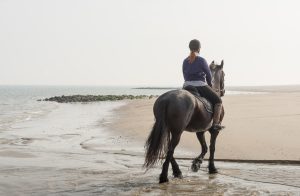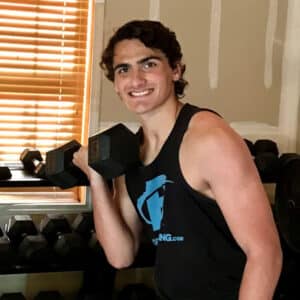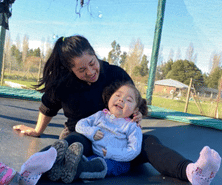
Emily has been using the Avery Diaphragm Pacemaker since she was three years old. She was born with CCHS, a disorder that affects breathing, causing shallow breaths (hypoventilation), especially during sleep.
Before she had the Avery Pacemaker implanted, Emily had to have a mechanical ventilator with her at all times. The ventilator made it difficult for her to speak for long stretches of time. Her physical activity was restricted, and she needed someone to carry the ventilator for her, especially when going up steps. Adding to a list of negatives, her trachea kept getting pulled out with the tubing.
The life-changing decision to use the Avery Diaphragm Pacemaker was made and the device was implanted at the Royal Hospital for Children in Bristol. After the Pacemaker was implanted, her body began to adapt. She recalls one of the biggest adjustments being the sudden functioning of her diaphragm. She describes the sensation as, “feeling like doing sit ups.” As she grew stronger, she was able to participate in activities that any healthy girl of her age would enjoy.
The most significant difference that the Avery Pacemaker has made for Emily is the lack of disruption to her life. Without having to carry a ventilator around with her, she participates in sports and is an active horseback rider. She emphasizes the importance of being able to cover the pacer well to make it “unnoticeable” by others. It is light and easy to carry, causing very little inconvenience to her life. She can swim and talk as long as she wants without experiencing any difficulties.
Emily discussed her experiences with the Avery Diaphragm Pacemaker at the CCHS Conference in Coventry, England on September 13, 2014. She shared her story with other CCHS patients and their families and explained what a difference the Avery Pacemaker has made in her life.
Source: ABD-PP-003, Rev B 06/2021




